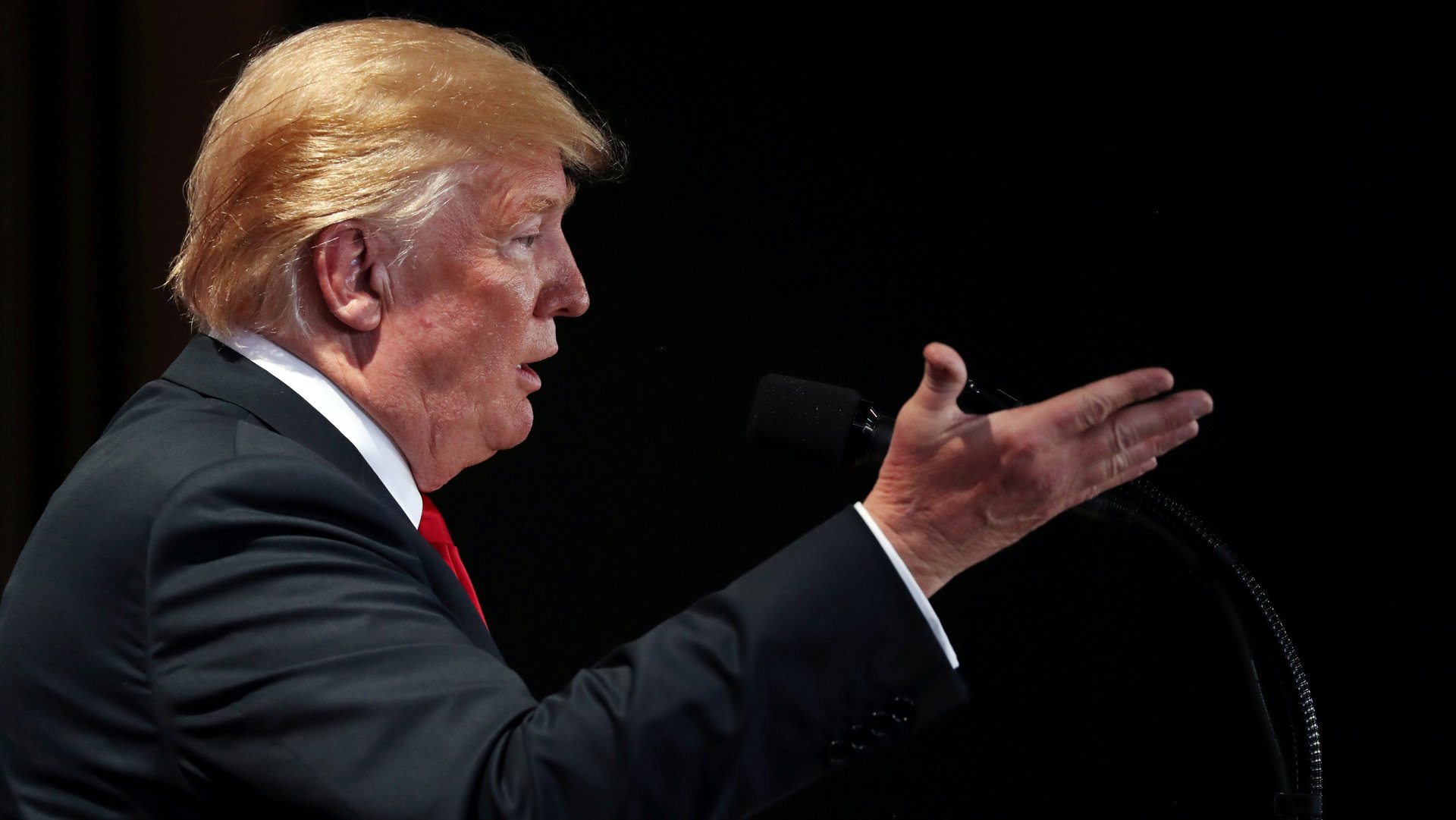Republicans and Democrats can unite—against helping this one Chinese company
Democrat and Republican lawmakers remain as split as ever on issues from immigration policy to taxes. But they invariably agree on one thing–the US should stay tough on China’s tech giants.


Democrat and Republican lawmakers remain as split as ever on issues from immigration policy to taxes. But they invariably agree on one thing–the US should stay tough on China’s tech giants.
On Monday (June 19) the Senate passed a defense spending bill for the financial year starting Oct. 1. It includes several measures aimed at Chinese telecom and surveillance equipment firms—including one that directly defies a recent Trump decision to throw a lifeline to crippled Chinese telecom firm ZTE.
It’s the latest twist in ZTE’s roller coaster ride since it was first barred in April from buying parts and software from American suppliers by the US Commerce Department. The ban was a response to its alleged failure to comply with a plea deal it agreed to last year for violating US sanctions on Iran and North Korea. That soon led to a production halt.
Then in May, Trump unexpectedly tweeted concern for the jobs that could be lost at ZTE—which employs 75,000 people. By the end of the month, with Trump’s support, the Department of Commerce struck a deal (paywall) with ZTE, allowing it to resume purchasing from US suppliers in return for a $1 billion fine and allowing Chinese-speaking US compliance personnel to be installed in the company for a decade.
The deal led to unhappiness from both Democrats and Republicans, with a bipartisan group of senators putting forth an amendment within two weeks to re-instate the component sales ban. After the Senate vote on the defense bill closed, with the bill passing 85-10, four of the senators who had put forward the amendment released a statement.
“We’re heartened that both parties made it clear that protecting American jobs and national security must come first when making deals with countries like China, which has a history of having little regard for either,” they wrote. “It is vital that our colleagues in the House keep this bipartisan provision in the bill as it heads towards a conference.”
In addition to reversing the US reversal on ZTE, the bill also calls for bans on government procurement of surveillance and telecom equipment made by five Chinese companies. Apart from ZTE, these include telecom firm Huawei, camera companies Hikvision and Dahua, and radio terminal maker Hytera. Huawei has been under suspicion from US lawmakers since 2012, when the House Intelligence Committee released a report arguing that the company poses a national security threat due to alleged ties with the Chinese state. Hikvision cameras were recently removed (paywall) from a US military base after the Wall Street Journal reported on the US using equipment from a company 42% owned by the Chinese government. None of the four companies responded immediately for comment.
Still, Trump might yet get his way on ZTE, which has seen its market value lose billions since this saga started. The final version of the bill will be passed only after it’s reconciled with the House’s version, which passed earlier and does not include a provision to re-instate the sales ban. Trump is expected to meet powerful Republican lawmakers over ZTE on Wednesday—and has also taken a tough stance on China this week on trade, threatening $200 billion in fresh tariffs.